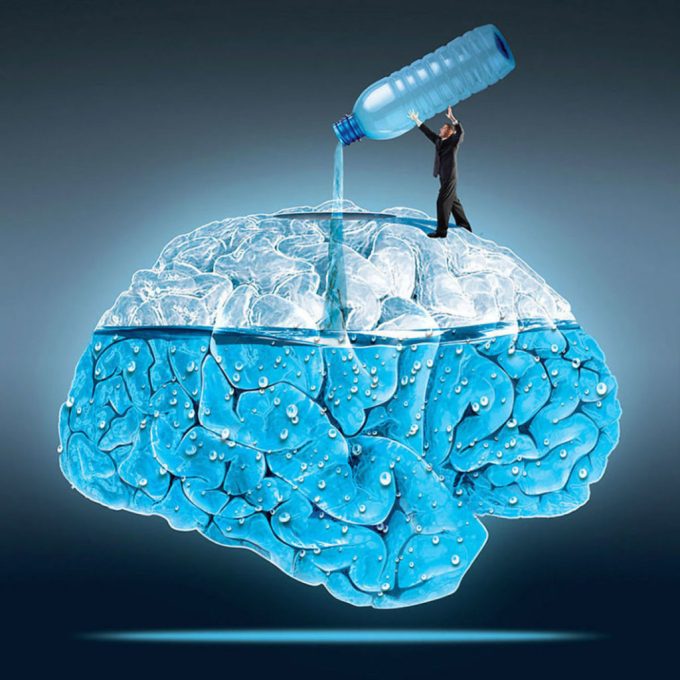Concept Of Alternative Medicine
Alternative medicine is any practice that aims to achieve the healing effects of medicine despite lacking biological plausibility, testability, repeatability or evidence of effectiveness. Unlike modern medicine, which employs the scientific method to test plausible therapies by way of responsible and ethical clinical trials, producing repeatable evidence of either effect or of no effect, alternative medicine therapies reside outside of mainstream medicine and do not originate from using the scientific method, but instead rely on testimonials, anecdotes, religion, tradition, superstition, belief in supernatural “energies”, pseudoscience, errors in reasoning, propaganda, fraud, or other unscientific sources.
Various Examples Of Alternative Medicine
Ayurveda

Ayurveda is a traditional Indian alternative medicine that dates back thousands of years. In Sanskrit, Ayurveda translates to “the science of life” or the “Mother of All Healing.” This was an oral tradition, and there aren’t many written records available anymore. The foundational principles of Ayurveda, which advocate for the promotion of health by the harmony of the mind, body, and spirit, are the basis of many alternative therapies. It is believed that each individual is made up of a special blend of the five universal elements of space, air, fire, water, and earth. The Vata, Pitta, and Kapha doshas are the three doshas, or energies, that are comprised of these elements.
Each person has a unique combination of these energies, each with its properties and controls. When one becomes ill, it is a result of an imbalance in their doshas that must be rebalanced. The Ayurveda practice focuses on maintaining a healthy balance among all these aspects of life to promote health and well-being.
Meditation

Meditation is a common practice of alternative medicine in many ancient religions, including Buddhism and Hinduism. People can attempt a variety of meditation techniques these days, some of which are religious in character and some of which are not.
Many studies have verified that meditation has health benefits. It can lower blood pressure and stress levels. it may aso reduce the symptoms of: anxiety, depression, irritable bowel syndrome, insomnia, menopause.
Yoga

Yoga is a mind-body activity that has its roots in spiritual traditions, much like meditation. It entails breathing while alternating between sets of poses and stretches. Many people around the world practice yoga to promote mental and physical well-being.
Some research suggests yoga may help:
- Lower stress
- Improve sleep
- Improve balance
- Manage anxiety or depression
- Reduce neck and lower back pain
- Manage weight
- Alleviate the symptoms of menopause
- Reduce the symptoms of chronic conditions
Tai Chi

Similar to this, the ancient Chinese practice of tai chi aims to improve the mind-body connection. The exercise began as a kind of self-defense but has since evolved into breath-synchronized, martial arts-inspired movements. As a kind of active meditation, these movements are performed slowly, continuously, and at the participant’s pace. There are numerous variations of the practice, ranging from meditation-focused to more conventional self-defense oriented. Tai chi claims comparable effects to yoga, including improved mood, flexibility, stamina, and balance with decreased anxiety/depression and insomnia, among others.
Acupuncture
Acupuncture is a Chinese alternative medicine technique used to balance chi, the energy of life. According to ancient beliefs, chi is an energy flow that courses along bodily pathways. These paths are termed meridians. With acupuncture, small needles are placed transdermally along these meridians to redirect chi. The needles are often manipulated clockwise or counterclockwise, twisting to stimulate chi further.
It is also possible to attach the needles to electric stimulators to deliver either continuous or sporadic electric stimulation. Electroacupuncture is the name for this more recent type of acupuncture. The placement and manipulation of the needles vary based on the goal of the treatment. There are many uses for treatment, from managing the symptoms of depression, pain, gastrointestinal problems, and allergic rhinitis to focusing on certain objectives like treating infertility or lowering the risk of long-term conditions like cardiovascular disease.
Herbal medicine
Another broadly defined word that encompasses a variety of activities is herbal medicine. Many cultures throughout history have embraced botanicals and herbs for their healing properties. For instance, the Ebers Papyrus, a document composed by the ancient Egyptians around 1550 BC, described the therapeutic applications of more than 850 different plants. Similarly, Traditional Chinese Medicine provides a great deal of the current understanding of herbal supplements. In TCM, herbs are prescribed and used to treat a wide range of conditions, including depression, respiratory disorders like chronic obstructive pulmonary disease (COPD), liver dysfunction, and chronic heart failure.
These days, a lot of herbal supplements and items are available over-the-counter in pharmacies, grocery stores, and clinics. Any plant-based product used to promote health is considered a herbal product; on the other hand, a herbal supplement is meant to be used internally only. These goods and supplements consist of powdered, capsulated, dried, or minced extracts. After that, people can apply them (as lotions, oils, and pills), ingested (as bath soaks), or absorbed (as brewed teas or pills).
Some commonly used herbal supplements include:
- Black cohosh: Primarily used for issues regarding the female reproductive system, such as menstrual cramps
- Echinacea: Used to enhance the immune system
- Garlic: Noted for its beneficial cardiovascular effects, particularly cholesterol
- Ginseng: A commonly used energy-boosting agent (often found in energy drinks)
- St Johns’ Wort: Claims purport that it improves mood, particularly mild-to-moderate depression
Reiki

The foundation of reiki therapy is the Eastern idea that life energy moves through your body. The concept is that a reiki master, or person who specializes in reiki treatment, utilizes gentle contact, or places their hands slightly above your body, to assist guide this energy in a way that promotes healing and balance.
You might find reiki to be calming even if there is no scientific evidence that the energy field used in the practice exists.
Scientists have conducted studies on the effects of reiki on pain, anxiety, and depression. It’s a complementary treatment of alternative medicine, which means you use it along with proven traditional medical treatments. It doesn’t cure or get rid of any health conditions by itself.
Biofeedback

A method of alternative medicine called biofeedback (also known as biofeedback therapy) teaches you to influence how your body operates. It’s a mind-body treatment that could enhance your emotional and physical well-being.
A medical professional measures your body’s involuntary activities during a biofeedback session using noninvasive monitoring tools and equipment. This includes your respiration, heart rate, and tense muscles. Your physician makes recommendations on how to make voluntary (conscious) adjustments for these primarily involuntary functions based on data from the instruments. You can learn to achieve those physiological changes without the need of equipment with training and experience.
Medical professionals don’t use biofeedback as a standalone treatment for most conditions. However, it can aid in the management of some illnesses’ symptoms.
Hypnosis
An helpful strategy of alternative medicine for managing stress and anxiety is hypnosis. Specifically, it could reduce tension and worry prior to a medical operation, such a breast biopsy.
Also, Hypnosis could be beneficial for:
- Pain management: Hypnosis may help with pain due to burns, cancer, childbirth, fibromyalgia, irritable bowel syndrome, jaw issues, dental work, and migraines.
- Hot flashes: Hypnosis may ease hot flashes caused by menopause.
- Behavior change: Hypnosis helps in treating overeating, smoking, bedwetting, and sleep issues with some sucess.
- Adverse effects of cancer treatment: Hypnosis may ease radiation and chemotherapy side effects.
- Disorders of the mind: Hypnosis has the potential to lessen anxiety brought on by phobias and fears.














Leave a comment